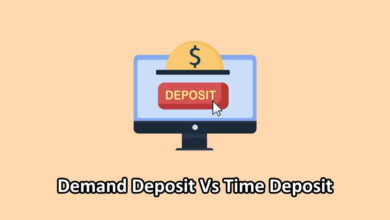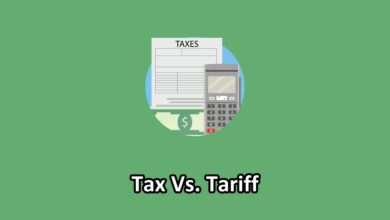Inbound Marketing Vs Marketing Automation: Battle of Marketing
Welcome to the world of digital marketing, where strategies evolve rapidly to meet the ever-changing demands of the online landscape. In this comprehensive guide, we aim to demystify the concepts of Inbound Marketing and Marketing Automation. By the end of this journey, you’ll not only understand these essential strategies but also know how to harness their power for your business’s success.
In today’s fast-paced digital marketing landscape, staying ahead of the competition requires a deep understanding of Inbound Marketing and Marketing Automation. The online sphere has transformed the way businesses engage with their audience. To thrive in this environment, you need to grasp these two critical components.
Inbound Marketing vs. Marketing Automation (A Comparison)
| Inbound Marketing | Marketing Automation |
|---|---|
| Inbound marketing is a customer-centric approach to marketing that focuses on creating valuable content and experiences to attract and engage potential customers. | Marketing automation refers to the use of software and technology to streamline and automate marketing tasks and processes. |
| Inbound marketing is a strategy that focuses on attracting and engaging potential customers by providing valuable content and fostering relationships. | Marketing automation is a technology-driven approach that automates marketing tasks and processes, often complementing Inbound Marketing strategies. |
| Inbound marketing involves the continuous creation and sharing of content to build trust and credibility over time, with content consistently delivered to the target audience. | Marketing automation is about real-time or triggered responses based on user behavior, ensuring timely and personalized interactions with customers. |
| The primary objective of Inbound Marketing is to build trust, attract prospects, and nurture them into loyal customers through value-driven content and relationship-building. | Marketing automation primarily focuses on optimizing marketing processes, reducing manual tasks, and delivering a more efficient customer journey. |
| Inbound marketing relies on content creation, SEO, social media management, and email marketing to create valuable content and engage potential customers. | Marketing automation utilizes tools like email marketing software, lead scoring, and behavior-triggered responses to automate marketing tasks and workflows. |
| Inbound marketing fosters engagement by providing valuable content and addressing customer pain points, aiming to build trust and nurture leads into loyal customers. | Marketing automation enhances engagement by delivering personalized and timely messages that cater to individual customer needs, based on their behavior and preferences. |
| Inbound marketing is effective for building brand awareness and establishing a strong online presence, while also offering personalization on a broader scale. | Marketing automation excels in personalizing interactions and efficiently managing large-scale marketing campaigns, tailoring messages to individual preferences. |
- Marketing Automation vs. Marketing Operations
- Marketing Automation vs. Campaign Management
- Revenue Marketing vs. Demand Generation
What is Inbound Marketing?
Inbound Marketing is a customer-centric approach that focuses on attracting, engaging, and delighting your audience through valuable content and experiences. It’s about creating a magnetic pull that draws potential customers to your brand. Inbound Marketing seeks to build trust and long-term relationships, rather than interrupting with traditional, disruptive advertising.
Highlighting the Core Principles and Objectives
At its core, Inbound Marketing aims to deliver the right message to the right people at the right time. This is achieved through:
- Content Creation: Crafting high-quality, relevant content that resonates with your target audience.
- SEO Optimization: Ensuring your content is discoverable by your ideal customers.
- Social Media Engagement: Actively participating in conversations and building relationships on social platforms.
- Email Marketing: Nurturing leads and guiding them through the buyer’s journey.
- Customer Delight: Delighting customers to promote loyalty and advocacy.
What is Marketing Automation?
Marketing Automation is the use of technology to streamline, automate, and measure marketing tasks and workflows. It plays a pivotal role in the digital marketing world by enhancing efficiency, personalizing customer experiences, and optimizing marketing campaigns.
Key Features and Benefits of Marketing Automation
Marketing Automation offers various benefits, such as lead nurturing, behavior tracking, and analytics. It allows you to:
- Segment your audience for targeted messaging.
- Trigger personalized responses based on user behavior.
- Measure the performance of your campaigns with precision.
- Save time and resources by automating repetitive tasks.
Examples of Inbound Marketing and Marketing Automation
Inbound Marketing strategies encompass blogging, social media engagement, content offers (eBooks, webinars), SEO, and email marketing. For instance, HubSpot excels in providing informative blog content and valuable resources to attract and engage its target audience.
Popular Marketing Automation tools include HubSpot, Marketo, and Pardot. These tools automate email marketing, lead scoring, and behavior-triggered responses, ensuring that your marketing efforts are not only efficient but also highly targeted.
Key Differences Between Inbound Marketing and Marketing Automation
Inbound Marketing and Marketing Automation are two distinct yet interrelated concepts in the world of digital marketing. Understanding their differences is crucial for crafting an effective marketing strategy:
Approach
- Inbound Marketing is a strategy that focuses on attracting, engaging, and nurturing leads through content and relationship-building.
- Marketing Automation is a technology-driven approach that streamlines marketing tasks and processes, often working in conjunction with Inbound Marketing.
Tools
- Inbound Marketing relies on content creation, SEO, social media management, and email marketing.
- Marketing Automation utilizes tools like email marketing software, lead scoring, and behavior-triggered responses.
Customer Engagement
- Inbound Marketing fosters engagement by providing valuable content and addressing the pain points of potential customers.
- Marketing Automation enhances engagement by delivering personalized and timely messages that cater to individual needs.
Objective
- Inbound Marketing aims to build trust, attract prospects, and nurture them into loyal customers.
- Marketing Automation focuses on optimizing marketing processes, reducing manual tasks, and delivering a more efficient customer journey.
Scale and Personalization
- Inbound Marketing is effective for building brand awareness and establishing a strong online presence.
- Marketing Automation excels in personalizing interactions and managing large-scale marketing campaigns efficiently.
When to Use Inbound Marketing
Inbound Marketing shines in scenarios where your goal is to build brand authority, foster customer trust, and nurture long-term relationships. This approach is ideal when:
- You want to establish thought leadership in your industry.
- Your target audience is actively searching for information or solutions online.
- You’re committed to creating high-quality, educational content that resonates with your audience.
Industries or Businesses that Benefit Most from Inbound Marketing
Inbound Marketing is particularly advantageous for businesses in knowledge-intensive sectors, such as software development, consulting, and education. Additionally, industries where customer loyalty and trust are paramount, like healthcare and finance, can greatly benefit from Inbound Marketing strategies.
When to Use Marketing Automation
Marketing Automation is the go-to choice when you need to streamline marketing processes, personalize user experiences, and scale your efforts. It’s particularly suitable when:
- You have a substantial volume of leads that require targeted nurturing.
- You want to react swiftly to user behavior and deliver personalized content in real time.
- Your marketing team needs to reduce manual and repetitive tasks to improve efficiency.
Marketing Automation excels in automating email marketing campaigns, lead scoring, and behavior-triggered responses. It’s also highly effective for automating customer segmentation and personalized content delivery based on user preferences and interactions.
Integration of Inbound Marketing and Marketing Automation
Inbound Marketing and Marketing Automation are not mutually exclusive; they can work in synergy. Inbound Marketing provides the content and engagement that Marketing Automation relies on to function effectively. Together, they create a powerful marketing strategy.
- Use Inbound Marketing to attract and engage leads through valuable content.
- Implement Marketing Automation to deliver personalized messages and automate lead nurturing based on user behavior.
- Continuously analyze data from both strategies to refine your approach and optimize results.
Leveraging AI in Marketing Automation
Artificial Intelligence (AI) is transforming Marketing Automation by providing predictive analytics, data-driven insights, and automated decision-making. It allows marketers to anticipate customer needs, personalize content, and optimize campaigns in ways never before possible.
AI plays a pivotal role in predictive lead scoring, ensuring that you focus your efforts on leads with the highest conversion potential. It can also analyze customer data to create personalized content and segment your audience effectively.
AI-powered tools like chatbots, predictive analytics platforms, and recommendation engines are becoming integral in automating customer interactions, optimizing ad targeting, and improving overall marketing efficiency.
Conclusion
In the dynamic world of digital marketing, Inbound Marketing and Marketing Automation are not just buzzwords but essential strategies for success. Understanding their nuances and how they can work together is key to staying ahead in the digital landscape.
Your choice between Inbound Marketing and Marketing Automation depends on your business objectives and resources. If you seek trust, long-term relationships, and thought leadership, focus on Inbound Marketing. If efficiency, personalization, and scalability are your goals, embrace Marketing Automation.
For many, a combination of both strategies strikes the perfect balance, offering the best of both worlds. Remember, the right approach is the one that aligns with your unique goals and audience.



